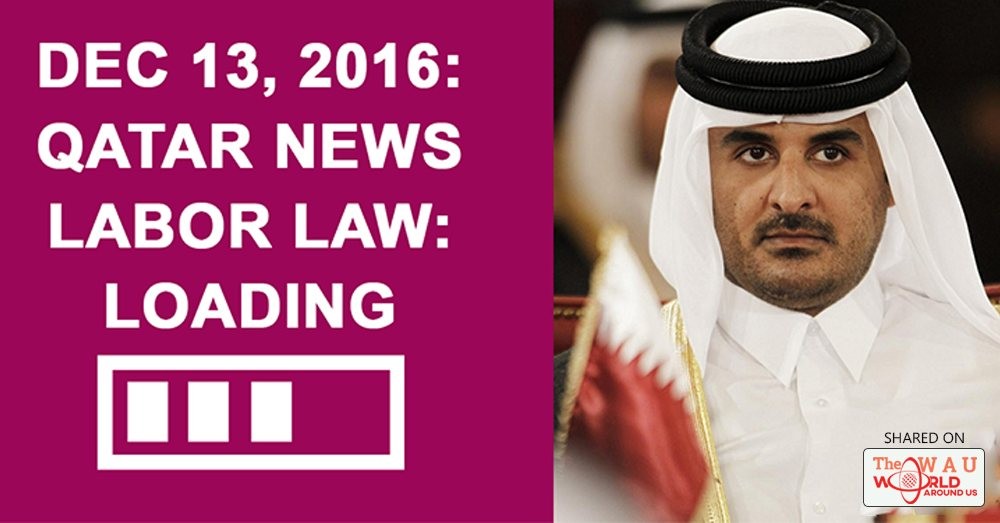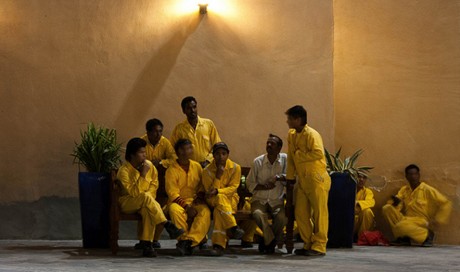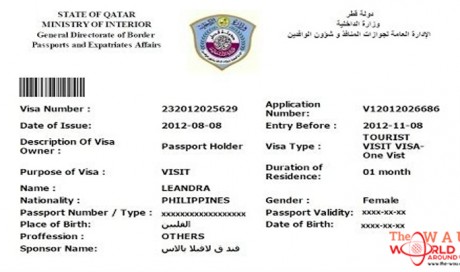The law abolishes the Kafala system and guarantees greater flexibility, freedom and protection to Qatar’s more than 2.1 million salaried workforce.
Today, Law No. 21 of 2015 comes into effect and introduces new provisions regulating the entry, exit and residency requirements for all workers in Qatar. The new measures come one year after Amir of Qatar, Shaikh Tamim bin Hamad Al Thani, signed the reforms into law.
The law abolishes the Kafala system and guarantees greater flexibility, freedom and protection to Qatar’s more than 2.1 million salaried workforce.
Discussing the announcement at a press conference today, the Minister of Administrative Development Labour & Social Affairs Dr. Issa bin Saad Al-Jafali Al-Nuaimi said:
“The State of Qatar is enormously grateful to the millions of workers who have come to Qatar to build our nation’s infrastructure during this period of rapid change. The new law is the latest step towards improving and protecting the rights of every expatriate worker in Qatar. It replaces the Kafala system with a modernised, contract-based system that safeguards worker rights and increases job flexibility.”
“We welcome any comment or constructive criticism, and will continue to do so in the future. However, we urge the international community not to draw any definitive conclusions until there has been time to see the new law in action. At its core, we are doing this because we believe it is the right thing to do and because it provides tangible new benefits to expatriate workers. This is why we will work diligently to ensure it is properly implemented, including increasing our monitoring capabilities and hiring more compliance inspectors to tighten the net on companies who violate the law.”
On the subject of enforcing the law, Brigadier Mohammed Ahmed Al Atiq Director General of the Department of Passport and Expatriates Affairs in the Ministry of Interior said:
“Enforcing Law No. 21 of 2015 is a government priority. Its success will be measured by how it is implemented in the weeks, months and years ahead.”
Under the new rules:
Freedom of movement is explicitly guaranteed. Expats have the right to leave the country after notifying the employer, whether to take leave or for an emergency.
Expats also have the right to permanently leave the country before or after completing the duration of their contract, after notifying the employer according to the terms of the contract.
If the employer rejects a leave request, the migrant worker can appeal to the Exit Permit Grievances Committee, which has to respond to all requests within 3 days. The applicant will be able to leave the country unless he is wanted in connection to any active criminal proceedings, or has defaulted on any debt in Qatar that remains unsettled.
Expats will no longer need approval from their existing employer to change jobs if they complete the length of a fixed-term contract.
Individuals in open-ended contracts will also be able to change jobs without their existing employer’s permission, provided that they complete a five-year service period.
All prospective migrant workers will be able to see a copy of their job contract, prior to leaving their country of origin, as obtaining a work visa will now require the existence of a job contract approved by the Ministry.
Employers found to have confiscated passports can be fined up to QR25,000 per worker. When enacted, this will be the toughest financial penalty against passport confiscation within the region.
How to change Jobs after December 14
The new Law No 21 of 2015 regulating the entry, exit and residency of expatriates, to be operating from December 13, has stipulated some very crucial provisions for the expatriate workers in Qatar.
One of the first provisions of the law is that the service periods of an expatriate worker will be calculated from the day he/she started working for their employer, including the days of employment prior to the implementation of the law, as announced by Ministry of Administrative Development, Labour and Social Affairs.
People who feel like they are struck in their job but not sure and confident enough to really know what exactly they can do or from where to start can now go through the below points and can make a choice.
Qatar's new sponsorship law is going to be implemented from 13 December 2016, that will remove the automatic two-year ban on the foreign workers and enables them to look for new options in the market as per their choice.
1. If you have fixed contract?
Employee completed fixed term contract period
Expats who have completed their fixed term contracts dont need approval from their employer for job change.
However, approval from MADLSA will br required and a written notice to employer is needed, the notice duration depends on the terms and conditions of the contract.
2. Not completed contract yet ?
Employee have not completed fixed term contract
Free switch of jobs is not available to employees who have not completed their fixed term contract, they need permission from existing employer, in case the employer didnt provide NOC, expat needs to stay out of Qatar till the contract expires. After the contract term is expired expat can come back to Qatar and can work for other company with the permission of MADLSA.
However, if the expat can prove he was mistreated by the employer, law enables them the right to demand transfer employment.
3. Do you have unlimited contracts?
5-years service done under open-ended contact
These Expats dont need approval from their employer for job change, only permission from MADLSA is required. Again the notice period need to be served after notifying the employer.
4. You have not completed unlimited contracts ?
Not completed 5 year service under open-ended contract
These Expats can not immediately change the job, permission from current employer is needed, in case the employer does not give NOC, expat needs to stay out of Qatar till the 5-year contract expires, later after expiration of the contract term, expats can return to Qatar and can join another employer with the approval from MADLSA.
Again the expat are given the right by the law to demand new employment if they can prove that they are mistreated by their current employer.
Share This Post















